Severe COVID-19 infection triggers changes that affect gene expression in immune system stem cells, causing long-lasting alterations in the body’s immune response, according to a new study by Weill Cornell Medicine and Jackson Laboratory investigators. The finding could help explain symptoms of prolonged inflammation and “long COVID” in people who have had the disease.

National Organization for Rare Disorders Designates Weill Cornell Medicine and NewYork-Presbyterian/Weill Cornell Medical Center as a Rare Disease Center of Excellence
September 7, 2023
Weill Cornell Medicine and NewYork-Presbyterian/Weill Cornell Medical Center have together been named a Rare Disease Center of Excellence by the National Organization for Rare Disorders (NORD). The designation adds the academic medical center to NORD’s collaborative network of 40 participating institutions that research and treat rare diseases.
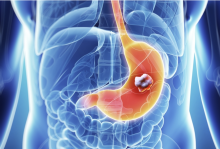
A New Targeted Treatment Shows Promise for Select Patients with Stomach Cancer
August 23, 2023
An international phase 3 clinical trial, done in participation with Weill Cornell Medicine and NewYork-Presbyterian, found that a new targeted treatment called zolbetuximab, given in combination with a standard chemotherapy, extended survival for patients with advanced gastric or gastroesophageal junction cancer that overexpressed a specific biomarker.

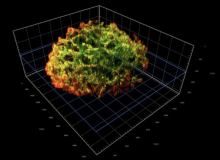
Mineralization of bone matrix regulates tumor cell growth
August 11, 2023
Tumor cells are known to be fickle sleeper agents, often lying dormant in distant tissues for years before reactivating and forming metastasis. Numerous factors have been studied to understand why the activation occurs, from cells and molecules to other components in the so-called tissue microenvironment.
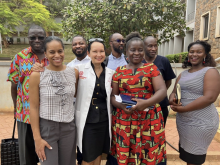
A Doctors Journey to Africa to Treat Breast Cancer Patients
August 3, 2023
"This work is my heart and soul," says Dr. Lisa Newman.
Taking care of breast cancer patients is her passion and one that led her and her colleagues to travel nearly 5,000 miles to Africa several times a year to see patients and help train and supply local doctors and clinics.
Her motivation for starting international breast cancer research in Africa was driven by the disparities observed among African American women in the United States.
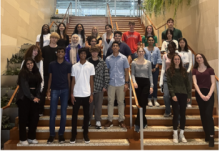
July 2023 EIPM Director's Memo
July 6, 2023
Dear Members of the Englander Institute,
Thank you all so much for another very successful and productive month!
I hope you enjoy reading about June’s accomplishments, that include new awards, news coverage of our work, abstracts presented at ASCO, recaps of meetings, and impressive publications by a range of our EIPM colleagues!

EIPM 2Q 2023 External Newsletter
July 3, 2023
Dear Friend of the Englander Institute for Precision Medicine,
Welcome to our second quarterly external newsletter of 2023!
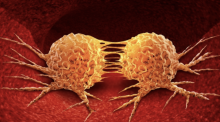
Tumor Metabolism Atlas Offers a New Way to Discover Disease Mechanisms
June 28, 2023
An atlas that catalogues gene activity and the levels of small molecules called metabolites in tumor samples offers a new way of identifying the deep mechanisms of cancer, according to researchers at Weill Cornell Medicine and Memorial Sloan Kettering Cancer Center.

June 2023 EIPM Director's Memo
June 1, 2023
Dear Members of the Englander Institute,
Thank you all so much for another very successful and productive month!
I hope you enjoy reading about May’s accomplishments, that include staff promotions, elections to professional committees, news coverage of our work, information about abstracts at ASCO 2023, recaps of meetings, and impressive publications by a range of our EIPM colleagues–including four new publications by Dr. Lorenzo Galluzzi!
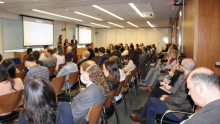
2023 Biomedical Engineering Symposium Highlights
May 29, 2023
Biomedical Engineering Symposium Showcases Research and Facilitates Collaborations
A two-day intercampus event, the “Biomedical Engineering Symposium: Tools to Transform Discovery & Care,” recently brought together dozens of specialists in the biomedical engineering field recently to share and discuss how this field can be used to improve nearly every aspect of healthcare.
Meeting Co-Chairs, from left, Drs. Marjolein van der Meulen, Susan C. Pannullo, and Olivier Elemento.

